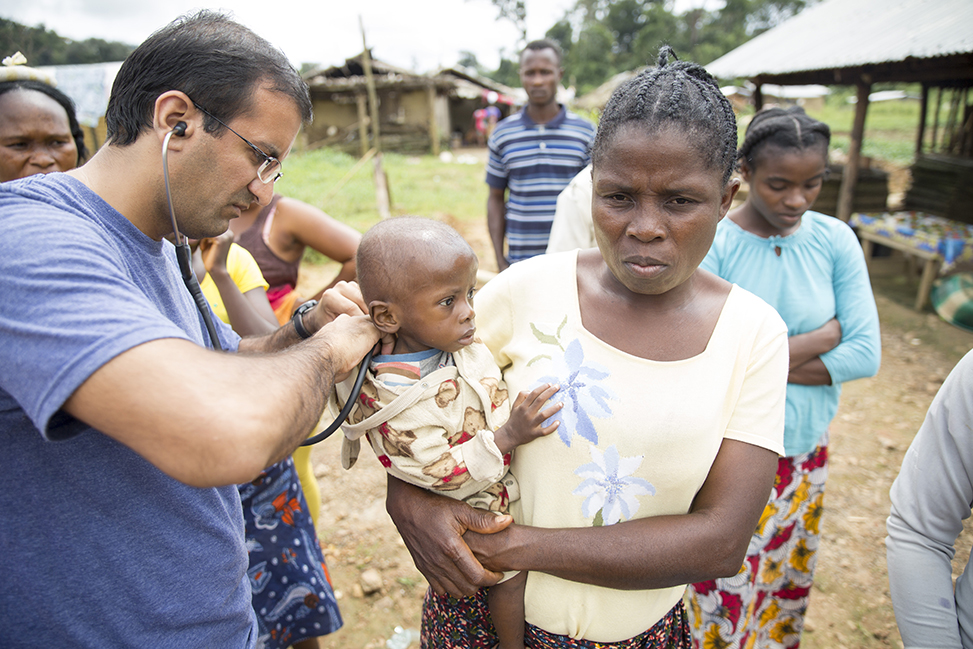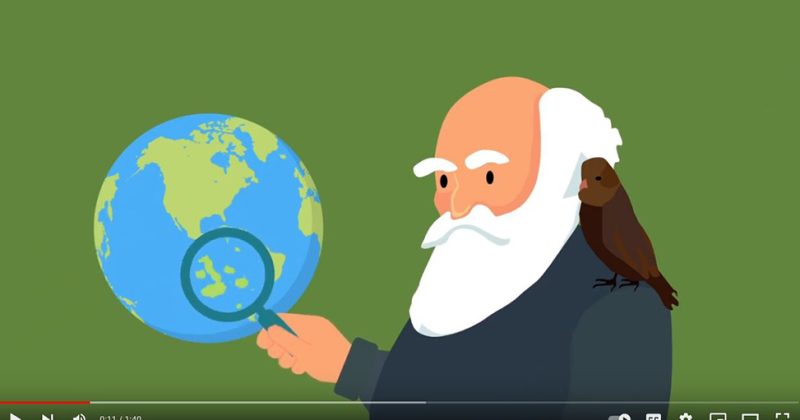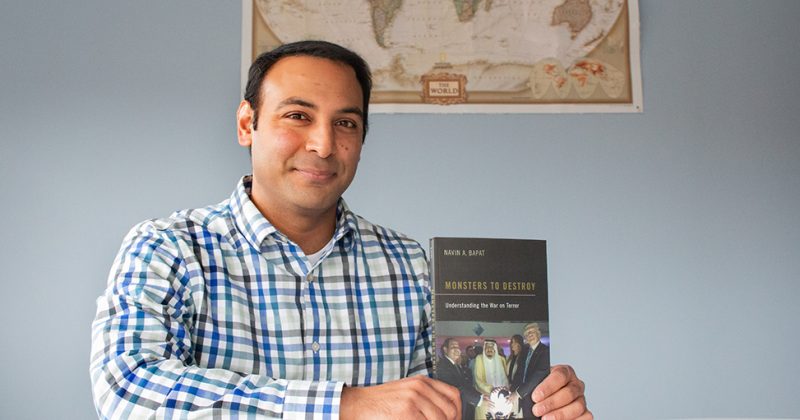
Raj Panjabi examines a malnourished child with malaria alongside rural nurses and community health workers in Rivercess County, Liberia. (by Gabriel Diamond)
Raj Panjabi was tapped by President Joe Biden to lead an initiative seeking to eradicate the mosquito-borne disease worldwide.
Born and raised in Liberia, Raj Panjabi dreamed of becoming a soccer star. But when he was 9, a civil war in the West African country forced his family to flee. They eventually resettled in High Point, North Carolina.
“My mother came knocking on my door one morning and said, ‘Pack your things; we’ve got to go,’” Panjabi recalled. “We all thought we were coming back. But we were wrong.”
Panjabi’s experience as a refugee and his career as a physician, social entrepreneur and public servant saving lives in the world’s most remote communities have been inextricably linked.
Today, Panjabi (chemistry ’02, M.D. ’07) is U.S. Global Malaria Coordinator for the U.S. President’s Malaria Initiative, where he oversees a $770 million annual budget at the U.S. Agency for International Development. The program’s goal is to end the mosquito-borne disease, which infects about 220 million people annually. Panjabi knows the disease well. He contracted it several times as a child and as an adult treating patients in Liberia.
Before joining the fight against malaria, Panjabi co-founded Last Mile Health, a nonprofit that builds rural health systems around the globe. The cause had personal meaning for him: In Liberia, he didn’t see a doctor until he was 8 because of inadequate facilities there. While CEO of that organization, he also served as a physician and professor at Harvard Medical School and Brigham and Women’s Hospital in Boston.
Panjabi, the son of Indian immigrants, said the disparities he witnessed as a refugee and a desire to understand the social, political and economic frameworks that drive such disparities drew him to minor in sociology at UNC. While his family was privileged enough to make it onto the packed military rescue plane, many were left behind and later killed. “I was old enough to know something was wrong, but you don’t know why it’s wrong. And I had a deep desire to understand why.”
He used a Burch Fellowship from Carolina to work in a public health clinic in a remote area of Alaska. While studying at the UNC School of Medicine, Panjabi took a year off to get a master’s degree in public health from Johns Hopkins University.
Panjabi met his wife, Amisha Raja (psychology/child development and family studies ’02) at UNC. In 2007, the pair launched Last Mile Health after partnering with community health workers to open Liberia’s first rural clinic for HIV/AIDS.
In his current role, Panjabi is overseeing a development partnership with nearly 30 countries to end the malaria pandemic. The disease is one of the oldest. Although largely eradicated in the United States, about 400,000 people globally die from the disease each year. Most are children in sub-Saharan Africa.
Since its inception, the program has helped save 7.6 million lives and prevent 1.5 billion infections.
“We’ve made great progress, but there are still huge challenges,” Panjabi said.
In 2016, TIME named Panjabi one of the 100 Most Influential People in the World for his role in building community health systems and responding to the Ebola epidemic in West Africa. Last fall, Panjabi spoke at UNC (virtually), delivering the Honors Carolina Frank Porter Graham Lecture, aptly titled “No Condition is Permanent.”
COVID-19 may be the pandemic on everyone’s mind, but Panjabi said the age-old fight between humans and pathogens is not a futile effort. Malaria has killed more people than the coronavirus has, but 40 countries have eliminated the disease, thanks to advances in science, government support and the dedication of community health workers.
“That’s what’s exciting about this,” Panjabi said. “We have the chance to make sure we end that fight despite some of those tough odds. And I think that we will.”
By Pamela Babcock
Published in the Fall 2021 issue | Tar Heels Up Close
Read More

‘Undergraduate research changed my life’
Troy Blackburn (B.A. exercise and sport science ’98, Ph.D. human…



